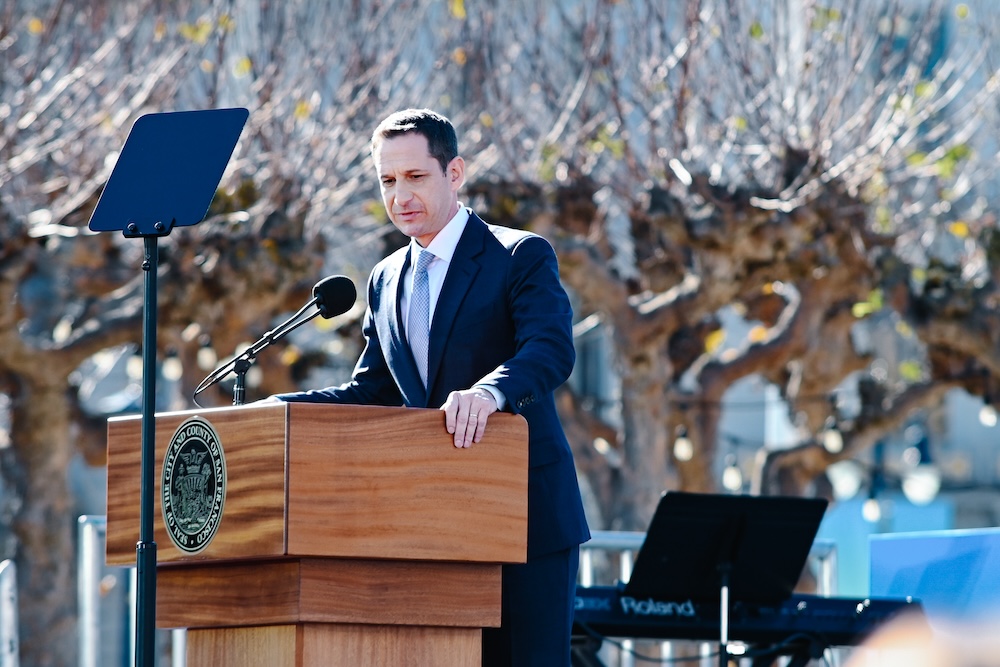Small business advocates Thursday presented a list of proposals that might slow the displacement of neighborhood shops and restaurants under the massive-scale upzoning the city is preparing for the West Side of town.
Small Business Forward and the Race and Equity in All Planning Coalition told commissioners that allowing speculators to demolish buildings on commercial corridors would threaten hundreds of community-serving businesses, including some that qualify for the city’s Legacy Business Program.

According to a 2024 report by the city’s Budget and Legislative Analyst, the upzoning, if successful, could lead to between 60 and 188 residential developments a year on neighborhood commercial blocks.
Lisa Chen, a senior city planner, reported that the 37 commercial corridors where height and density could increase include 5,680 small businesses.
Not every lot in those corridors is likely to see demolition and new, taller residential buildings. The city discourages the demolition of rent-controlled housing, so the primary sites, Chen said, are places that have just commercial tenants.
Those sites amount to 19 percent of the potential development areas, Chen said, meaning 1,052 small businesses are potentially at risk, including 47 legacy businesses.
The state bans cities from enacting any form of commercial rent control, so small merchants can be displaced any time a lease runs out. If a building is demolished, there are no requirements that the business can move back into a new structure at all, much less at the same rent.
The impact, advocates said, is likely to be a dramatic change in neighborhood commercial corridors—family-owned small businesses will be replaced by larger operations that can pay higher rent.
Help us save local journalism!
Every tax-deductible donation helps us grow to cover the issues that mean the most to our community. Become a 48 Hills Hero and support the only daily progressive news source in the Bay Area.
That’s the pervasive fear small businesses expressed:
“Existing small businesses should not be displaced. If you want all Starbucks and Subway sandwiches all over San Francisco, then you should do this. But if you want to preserve the quality of our small neighborhoods, then leave small businesses alone!” saidAriel Ford of Easy Breezy Frozen Yogurt on Irving Street and West Portal Ave.
Sean Kim, the owner of Joe’s Ice Cream in the Richmond, said he can’t invest in his business or make a long-term plan because “my landlord wants to demolish the building and build condos.”
Most small businesses in the city—about 80 percent, according to planners—don’t own their buildings. So most have zero protections from predatory landlords.
Small businesses, Chen said, provide 360,000 jobs in San Francisco. As big corporations move out of downtown offices and leave the city, neighborhood merchants are among the most important economic engines of the local economy.
New housing development will, under planning rules, include street-level storefronts. But as the value of the land rises (an inevitable impact of upzoning), so will the rents on the new spaces—meaning a very different type of neighborhood character.
Joseph Smooke, an architect and founder of PeoplePowerMedia, talked about the Hayes Valley neighborhood between Laguna and Franklin, where a lot of new housing has been built, including ground-floor retail. “It’s one of the most exclusive business areas in the city,” he said. People who live in affordable and public housing in the area, he said, can’t afford to shop at most of the businesses.
The days when most low-rise buildings were owned by mon-and-pop landlords are ending: More and more big corporations and speculators are buying that property, and refusing in some cases to lease to businesses that don’t have deep pockets.
That’s already happening on Fillmore Street.
The small business group offered some essential policy proposals that might mitigate the impacts of upzoning—and some of them would likely require state legislation.
Among the most important (and the city could probably do this on its own): Require the consent of an existing small business before any demolition permit is approved. That would give local merchants some leverage to negotiate with the speculators who bought the buildings.
Among the others:
—Require developers to provide substantial relocation assistance to the small business(es) for when they move out temporarily. State law already requires developers to provide some relocation assistance to residential and commercial tenants when developers use “streamlining” provisions to build (some) affordable housing in commercial districts. That, Small Business Forward says, could be expanded to:
—Require developers to pay the difference in commercial rent during the relocation period
—Require developers to pay relocation costs for the business(es) to move back in to their new space(s)
—Require developers to pay for marketing for the small business(es) for the period of relocation and for up to a year after the business(es) move(s) back into the new development
—Require developers to provide the new space(s) to the existing business(es) for their prior rent for at least 10 years with no more than Consumer Price Index rent increases annually.
I can already hear the Yimbys saying that it’s too expensive to build housing in San Francisco, and that this will mean many projects that would provide more (market rate) housing won’t “pencil out.”
But upzoning is a huge financial boost to property owners, and the city has never been good about capturing some of that increased value for the public good.
This might be a start.
The Planning Commission members all said they care about small businesses. Everyone always does. In the end, the upzoning will come before the Board of Supes, where some of these proposals could be included. The supes and the mayor can also call on our state Legislators, who love upzoning, to allow the city more tools to prevent small business displacement.
At that point, we will see who really cares about small businesses, and who cares more about speculators and real-estate developers.




